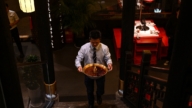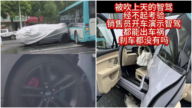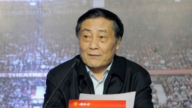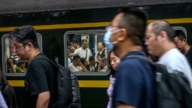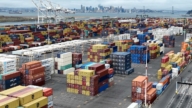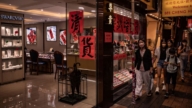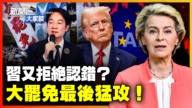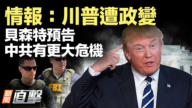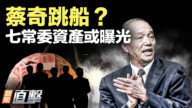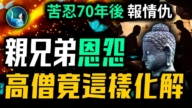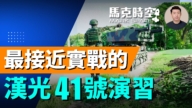【新唐人2013年06月20日讯】目前,中国大陆经济不断下滑,社会危机日益加深。为此,国务院总理李克强提出:打造“中国经济升级版”,试图通过拉动经济增长来缓解执政危机。但香港媒体认为,当前大陆经济面临5大风险,形势越发严峻。专家也指出,中共高层虽然尝试化解风险,但实际上,中国经济已经在“硬着陆”之中。
早前,中共总书记习近平在和美国总统欧巴马会面时曾经表态,中国经济风险总体上仍然可控。国务院总理李克强也曾提出:打造“中国经济升级版”,试图通过改革来拉动经济增长。
香港《经济日报》分析,中国大陆经济风险重重,中共中央是否还有机会和时间,通过经济增速来缓解社会压力、换取经济升级,这本身还是个问号。
报导指出,当前大陆经济归纳起来,至少面临5大风险,包括:就业压力、地方债务、影子银行、楼市泡沫和利益集团。其中,地方债务、和影子银行等金融风险已亮起红灯。早前三大国际评级机构一齐下调中国评级,对中国式“影子银行”和地方债风险发出警告。
6月18号,评级机构“惠誉国际(Fitch Group)”表示,中国正面临至少7年来最严重的钱荒,影子银行已出问题,银行危机可能提前爆发。上个月底,国际货币基金组织(IMF)也曾指出,中国地方政府债务已经占到GDP的50%。
北京天则经济研究所副所长冯兴元:“但实际上我们自己的计算结果是远远高于这个(IMF评估)的。今年是还债高峰,明年也是,后年可能更高。最近出现国债卖不完,那是重大事件。”
北京“天则经济研究所”副所长冯兴元,还向《新唐人》分析了“国债发行不出去”的深层原因。
冯兴元:“那说明社会上现在资金外逃可能比较严重、真正能用的资金比较紧张。第二个可能是,对政府债务比较怵。”
根据统计局公布的5月份全中国大中城市房价数据,显示,房价高烧不退,楼市泡沫加大。同时,大批企业经营困难,就业压力明显加剧,今年被称为“史上最难就业年”。据说,严峻的就业形势已迫使习、李亲自过问。
另外,17号,国防部征兵办公室对外表示,今年的征兵时间由冬季调整到夏秋季。以大学生入伍优先,并享有各种优惠政策。
对此,大陆企业观察人士何军樵分析指出,当局是为了缓解大学生就业压力。但这一举措并不被看好。
大陆企业观察人士何军樵:“即使去征兵,有多少大学生愿意去从事军人这一行业呢?这个报导应该说从另一个方面反映了:中国目前的就业形势是非常严峻的。”
港媒则报导说,有接近决策层的官方智囊指出,近期的相关数据显示,中国经济可能二次探底,中共中央也意识到经济形势严峻。
何军樵:“什么叫做二次探底呀?我觉得中国经济是不是探底了,我现在还表示怀疑。恐怕这个底比你我想像的还要更深一点。如果说硬着陆的指标就是经济崩溃,那这个指标未免也定的太高了一些。中国经济我认为已经是在硬着陆了。”
何军樵强调,中国的经济命脉掌握在利益集团手里,这个集团自然不愿放弃自身利益、进行经济变革。何军樵同时指出,中国的经济问题实质上反映的是政治问题,这绝不是靠技术和技术官僚可以解决。目前当局的举措都是治标不治本,等病情一旦恶化之后,将一发不可收拾。
采访/易如 编辑/李谦 后制/葛雷
HK Media: 5 Major Risks Facing Chinese Economy
China’s economy is continuing to decline and
social turmoil deepens.
Premier Li Keqiang announced plans to build
“an upgraded version of the Chinese economy”,
trying to stimulate economic growth to ease the ruling crisis.
But Hong Kong media have pointed out that
there are currently five major risks facing the mainland
economy have made the situation even more grim.
Experts also pointed out that the Chinese Communist Party
(CCP) leadership are attempting to resolve the risks,
but China’s economy has already reached the “hard landing”.
During the meeting of General Secretary Xi Jinping and
U.S. President Obama, Xi said, that
the overall risk for the Chinese economy
is still controllable.
Premier Li Keqiang has proposed to build “an
upgraded version of the Chinese economy”,
trying to stimulate economic
growth through reforms.
Economic Times in Hong Kong analysis is that
the China’s economy is at risk.
Whether there is opportunity and enough time left
for the CCP’s Central Committee
to ease social tensions through economic growth,
in exchange for economic upgrading, it is still in question.
It is reported that the current mainland economy
is facing at least five major risks.
These major risks include employment pressure, local debt,
shadow banking, the housing bubble and interest groups.
Among them, the local debts, shadow banks and
other financial risks have raised alarm.
Some time ago, three major international rating
agencies together lowered China’s rating,
and warned about Chinese-style shadow banking
and local debt risks.
On June 18, the rating agency Fitch Group said China is facing
its most severe money shortage in at least the past seven years.
The shadow banking has run into problems,
And a banking crisis could quickly erupt.
In late May, International Monetary Fund (IMF) has pointed
out that Chinese local debt accounts for 50% of GDP.
Feng Xingyuan, deputy director of Beijing Institute of
Economics: “Our own calculations are much higher than this (IMF assessment).
This year is the debt peak, so is next year,
and the year after next may be even higher.
Unsold bonds appearing recently
is a significant indicator.”
Feng Xingyuan also analyzed the underlying causes of
unsold national debts.
Feng Xingyuan: “It indicates that in our society,
there are serious quantities of capital flowing overseas, and that real money is scarce.
A second possibility is the relative risks of government debt.”
According to Chinese cities housing data
announced in May by Bureau of Statistics,
it shows that house prices continue to be high,
and the property bubble is growing.
Meanwhile, a large number of business have difficulties,
and the employment pressure has increased significantly.
2013 is called “the most difficult year
for employment in history”.
It is said that the severe employment situation
has forced Xi and Li to intervene personally.
In addition, on June 17, the recruitment office
of the Defense Department announced that
the conscription time this year had been adjusted
from winter to summer and autumn.
College students have priority in recruitment, and
enjoy various preferential treatment and policies.
In this regard, mainland enterprises observer
He Junqiao pointed out that
the CCP is trying to ease the employment pressure.
But these measures are not optimistic.
He Junqiao, said, “Even for conscription, how many
college students are willing to enter the military?
This report reflects from the other side that
China’s current employment situation is very grim.”
Hong Kong media then reported that there are official think
tank members close to the decision-making level
that the recent data indicates that China’s
economy may have double dipped,
and the CCP Central Committee is also aware of
this grim economic reality.
He Junqiao; “What is a double dip? I think the Chinese
economy has not reached bottom, but I’m still skeptical.
I’m afraid this bottom would be a little deeper
than we thought.
If the indicator for a hard landing is economic collapse,
this indicator is set up too high.
The Chinese economy, I think is already in hard landing.”
He Junqiao stressed that China’s economic lifeline
rests in the hands of interest groups,
who are naturally reluctant to give up their own
interests for economic reforms.
He Junqiao also pointed out that China’s economic
problems are essentially reflecting the political problems, which is never a mere technical issue.
Current initiatives are only stopgap measures, and
once the situation deteriorates, they will not work.


